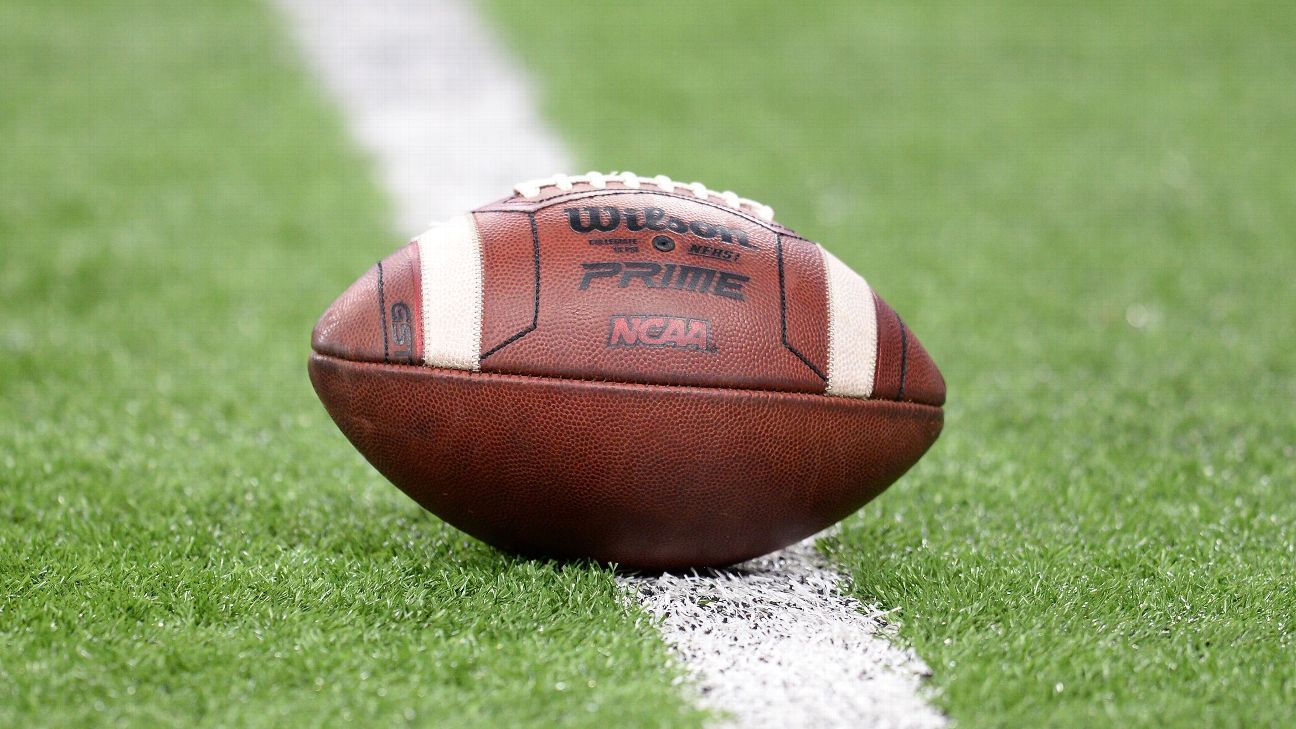The NCAA Division I Council on Tuesday approved a rule change that will allow all football staff members to provide coaching instruction during practice and games, a change that removes some restrictions on the NCAA’s previous maximum of 11 “countable” coaches.
The decision would go into effect immediately after the meeting concludes Wednesday, according to the NCAA.
“Moving forward, any staff member may provide technical and tactical instruction to student-athletes during practice and competition,” the NCAA stated.
The new rule maintains that at the FBS level, only 10 assistants and the head coach are allowed to recruit off-campus. The national service academies are allowed four additional off-campus recruiters. Only staff members “who regularly engage in on-campus coaching activities with student-athletes can be counted as off-campus recruiters.”
According to the NCAA, FBS programs are still able to have up to four graduate student coaches and no more than five strength and conditioning coaches. Limits for student assistant coaches will be the same as the number of permissible off-campus recruiters for a football program.
“NCAA members continue efforts to modernize support for student-athletes, and removing restrictions on skill instruction in football will provide those student-athletes with increased resources to achieve their greatest on-field potential,” said Josh Whitman, chair of the council and athletic director at Illinois, in a prepared statement from the NCAA. “At the same time, the council determined that maintaining limits on recruiting personnel will preserve competitive balance in recruiting while also localizing decision-making around how best to maximize support for student-athletes.”
The rule is meant to address the large staffs some of the bigger programs hire with ambiguous titles such as “quality control” coaches, analysts, directors of player personnel and player development.
Instead of the gray area that existed before, which for many schools was a compliance nightmare, those staff members will now be allowed to provide hands-on instruction. The rule isn’t intended to be a green light for head coaches to hire 12 new assistants. Instead, the idea is to modernize the rule and allow for scenarios such as when fired head coaches are recycled onto other staffs in the guise of a “quality control” coach who previously might have ignored the rule to provide instruction.
“Instead of micromanaging and some people trying to abuse it,” one source said, “let’s just allow it. There’s a point of diminishing returns. You can’t have 100 coaches out there.”
While some have expressed concerns about coaches building supersized staffs, the number of coaches on headsets isn’t expected to change on game day. There was a sense within the Football Oversight Committee that it would be unrealistic to allow the staff members to coach during the week, but then not allow them to give any level of instruction or encouragement on game days.
Craig Bohl, the executive director of the American Football Coaches Association, told ESPN in May that the rule unanimously passed the Football Oversight Committee. Bohl said the AFCA coaches were unanimous in their support for the rule, too.
“It gives an opportunity for younger coaches, younger people in our profession, to have an opportunity to coach, and right now they’re being restricted,” he said. “It’s a common sense approach. We’re now in a position where players are being compensated. So why be concerned about an assistant quarterback coach? We’ve got bigger fish to fry with the challenges in college football.”
The NCAA council also voted on Tuesday to remove cannabinoids from the banned drug class for championships and postseason participation in football, effective immediately.
“The NCAA drug testing program is intended to focus on integrity of competition, and cannabis products do not provide a competitive advantage,” Whitman said. “The council’s focus is on policies centered on student-athlete health and well-being rather than punishment for cannabis use.”
Any penalties currently being served by student-athletes who previously tested positive for cannabinoids will be discontinued.
The council also approved additional recruiting calendar changes recommended by the FBS and FCS Oversight Committees, including moving football’s early signing date to the first week of December. In FBS football, the July dead period was extended. Beginning July 1, there will be a 31-day dead period to allow coaches to prepare for the upcoming season without focusing on recruiting. The council also added a December quiet period to allow teams to focus on the postseason and allow on-campus recruiting. The January contact period was extended, which will allow schools the opportunity to recruit high school juniors and four-year college transfers.

